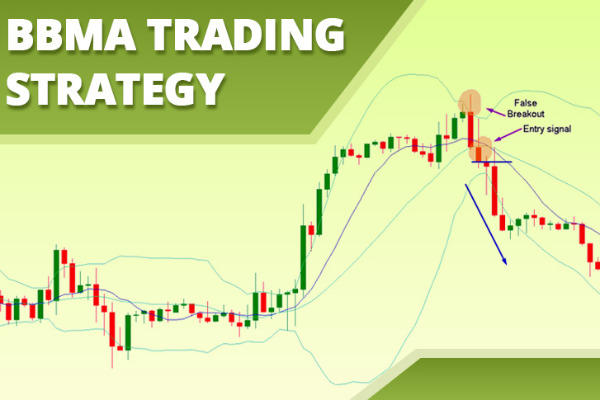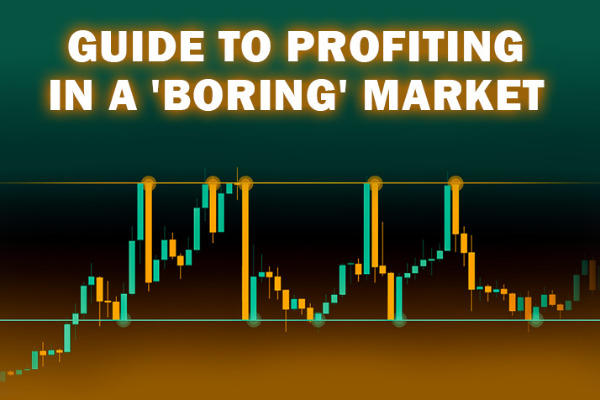Hedging is one of the most popular forex strategies in the world. But apparently, hedging practices are not legal in certain countries. How so?

The forex market is a vast and busy place that operates 24 hours a day, 5 days a week. As a result, it creates a highly competitive environment where people are constantly searching for new and better strategies to take as much profit as possible. In that case, hedging is one of the most popular techniques that many forex traders like to use. Some even consider it necessary because everyone would want to protect their funds from market volatility.
However, we should note that hedging is a pretty unique strategy that has its own challenges. One of them is regarding its legality. As you may know already, each country has different policies when it comes to forex trading and some countries actually ban hedging practices for several reasons. Therefore, it's crucial to learn about it and see if your government allows forex hedging before trying it out. Before we dive deeper into that, let's find out what hedging is all about and how to use it in forex trading.
What Is Forex Hedging?
The hedging strategy involves the act of opening two or more positions in the opposite direction. Forex hedging basically requires the trader to open a buy and sell order of a particular currency pair in order to ensure the protection of the invested funds.
The idea is to open a new order that could offset or limit the risks of the other order. This is why the strategy can be a huge help if the trader's unsure about the upcoming price movements. They can just let the two trades open until they catch a clear signal from the chart, but keeping it too long would risk paying a double loss.
There are several ways to hedge in forex trading. The first one is called direct hedge, which involves opening an order that buys one currency pair, such as GBP/USD, while simultaneously placing another trade to sell the same pair. This means that if the market goes against your first trade, you can still make money from the second trade without having to close the first one.
However, it's worth mentioning that some brokers don't allow traders to take direct hedge in the same account, so keep an eye on that and perhaps consider other approaches as well.
The second method is to hedge with multiple currency pairs. In this case, it's important to figure out the correlations between different currency pairs and choose the ones that are highly correlated, either positively or negatively. A positive correlation means that two pairs tend to move together in the same direction, while a negative correlation happens if two pairs tend to move in opposite ways.
For example, the GBP/USD and EUR/GBP are negatively correlated. Therefore, if you buy on one pair and sell on the other, you're going to create a hedge. Most brokers typically allow this method because it involves opening two positions in different currency pairs. The only issue with this type of hedging is that it can be more complicated and you'll be exposed to the fluctuations of both pairs.
Last but not least, many traders also like to use derivatives such as options and futures to hedge their active positions. A forex option refers to an agreement that gives you the option to take any action at a pre-determined price in the future. So for example, you're going long on AUD/USD pair, but you're worried that the price is going to fall any time soon. Instead of closing your order, you could hedge your position by buying a put option that gives you the right to sell the pair if the price falls below a certain level. This way, you could still make a profit even though your predictions are wrong because your funds are protected.
See Also:
Is Hedging in Forex Illegal?
Using the hedging strategy in forex is actually considered illegal in certain countries, including the US. This means, all forex brokers that are based in the States simply prohibit the use of hedging in forex trading.
It is worth noting that not all hedging methods are illegal, but the idea of opening two opposite positions in the same currency pair is certainly illegal within the country. The primary reason why the US bans hedging is that it costs traders double spread, which obviously favors the broker more than the trader.
In 2009, the National Futures Association (NFA), a forex self-regulating organization in the US, released a new policy called the Compliance Rule 2-43b, which basically eliminates hedging in forex trading. This new policy states that Forex Dealer Members (FDMs) and Retail Foreign Exchange Dealers (RFED) should not allow clients to hedge their trades and must offset positions on the First In First Out (FIFO) rule basis.
The FIFO rules mean that traders must close the earliest trades first in situations where there are several open trades of the same currency pairs and are of the same position size. Consequently, traders are not allowed to hedge and have two opposing positions of the same pair going on simultaneously.
However, some traders apparently managed to find a gap in this rule. While the policy certainly applies to all US forex brokers, it turns out that US traders are still able to hedge if they use offshore brokers. This could be seen as a brilliant alternative for their trading plan, but what they might not realize is that such action will more likely expose them to a bigger danger.
By using an offshore broker, traders naturally become more susceptible to scams and fraudulent practices at the broker level, considering that offshore brokers mostly aren't regulated by trusted authorities. Therefore, although it's possible to do, this option is certainly not recommended.
At this point, you might be thinking that hedging is not a great option after all. But the good news is that hedging practices are mostly legal in other countries, including in the EU, Asia, and Australia. That doesn't necessarily mean that there's no regulation about it, though.
In the EU, there's a policy about "variation margins" that applies to any bank, company, and fund that use currency forwards and other derivatives to hedge. The policy was implemented in January 2018. Unfortunately, it didn't get a lot of support from the market participants. Many traders argue that this rule will limit their access to market opportunities and make European cities less attractive as currency-trading hubs. On the other hand, others say that the rule is necessary to prevent traders from being reckless.
Is Hedging Strategy Still Profitable and Worth the Effort?
From this article, we've learned that hedging is not as simple as it looks. Other than the complexity of the strategy itself, hedging needs a lot of our attention and consideration in order to work smoothly. But above all that, the big question is whether hedging is profitable enough and worth all the work compared to other easier strategies. In this case, the answer is still questionable, especially for beginners.
If you can manage it well, hedging offers a great risk management system as it's able to minimize your potential loss and even make it break even during unexpected market turnovers. Remember that economic news, rate decisions, and other economic events can give a rather significant impact on forex prices, so it's highly important to have a protective layer to your funds.
However, keep in mind that hedging is certainly not free of risk. Although it's still considered low-risk, it could cost you a double loss if you're not careful about entering and exiting the market at the right time. Therefore, you should ask yourself if the potential benefits are bigger than the expense.
Apart from that, you should also consider that hedging practices are illegal in some countries, including the US. So if you're a US resident, unfortunately, you should come up with a new trading plan and forget hedging the same currency pairs.
However, if you're from outside the US, hedging is still very much possible to do. Many major brokers now allow hedging practices for worldwide traders. In fact, this can be an advantage for the brokers since it can make them earn twice the spread from hedgers than regular traders. Just don't forget to always check the broker's policy before registering and choose the one that suits your trading style the most.

 Dedicated FREE FOREX VPS
Dedicated FREE FOREX VPS Free FOREX Virtual Private Server
Free FOREX Virtual Private Server MT4 Demo Contest, Get $500
MT4 Demo Contest, Get $500 Sign Up for an Account, Claim 60% Deposit Bonus
Sign Up for an Account, Claim 60% Deposit Bonus Free MT4/MT5 VPS 2024
Free MT4/MT5 VPS 2024 Send E-mail and Get Free Merchandise
Send E-mail and Get Free Merchandise $1K Refer a Friend Bonus for Pepperstone Pro clients
$1K Refer a Friend Bonus for Pepperstone Pro clients Maximize Your Earnings with 100% Deposit bonus
Maximize Your Earnings with 100% Deposit bonus Trade to Win, $5,000 Monthly Demo Contest
Trade to Win, $5,000 Monthly Demo Contest Claim 30% + 15% Deposit Bonus from LiteFinance
Claim 30% + 15% Deposit Bonus from LiteFinance











